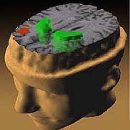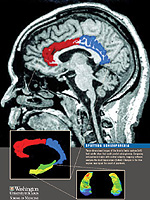What is psychopathy psychopathy? Than Psychiatric type personalities differ from the rest? Read the Answers in the article.
Content
Psychiatric person
As well as asthenic type,
refers to brambos psychopathy. In addition to the hell irritable
Weakness, vulnerability and feelings of inferiority, psychopathic
Persons of this type are distinguished by pronounced indecision, uncertainty
in itself and a tendency to doubt.
Psychiatric Persons:
- shy;
- timid;
- confused;
- low-active;
- well adapted to life.
Who are Psychiatrics?

Remarkable feature of this psychopathy
- symptom of reduced activity, t. E. Reduced special
«Psychological tension», the completeness of which determines the normal
mental activity. This feature is manifested in inclinations to
doubts and painful wise, in insufficient feeling
reality and completeness of life, absence of liveliness, brightness of perception
surrounding, in the desire for self-analysis, the predominance of abstract,
Torn from real facts of intellectual constructions. Such
A person is always and in everything doubts, it is extremely difficult for him to take
Any solution, but if it is accepted, there is a new concern -
impatient desire to translate this decision to life.
Psychostenic is continuously engaged in barren mental work
- so-called mental cheek. He infinitely analyzes his
actions, inclined to reduced self-esteem, rarely satisfied with itself.
Characteristic subjectively painful loss «Real feelings».
Read and heard produce a stronger impression on it,
What is the direct perception of the situation.
Psychiatric constitution
- favorable soil for various obsessions, mainly
obsessive ideas (obsessional syndrome). For suffering psychostenical
psychopathy, as well as for asthenics, difficult changes and violations
the usual mistake, at the same time the uncertainty,
Doubts and disturbing fears.
Anxiety is so characteristic of this
Persons that psychasteric character also call
Anxious-mens. Easy vulnerable and vulnerable psychiatric personalities
in society are delicate and tacty. However, they are often pedantic,
annoying, stick to others with endless doubts or require
accurate fulfillment of all formalities.
The dynamics of psychopathy is due
interaction of constitutional features of the personality and
A variety of external and internal factors:
-
psychogenic;
-
somatogenic;
-
crisis periods of life and others.
Their different ratio determines
Different changes. Eliminate short-term dynamic shifts
(decompensation, phases, reactions) and long-term pathological development.
A shared line of all pathological conditions constituting the dynamics
psychopathy, is their non-vanity. As a rule, after
Decompensation The psychopathic person returns to the initial level.
Changes predominantly quantitative, and with progredinary psychosis
They are always qualitative.









